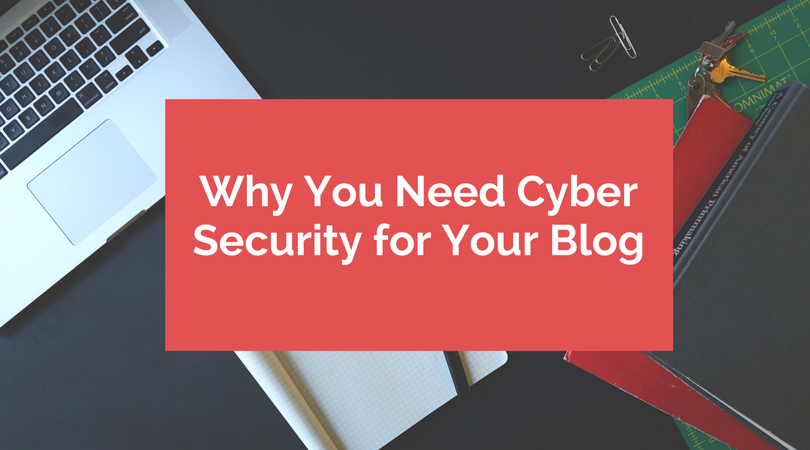Whether your aim is to write for a funky blog or a formal online journal, security is always essential. While many use the blog as a fun diary to record personal experiences, for others, blogging means business, a platform of hard work to either critique or reflect the world around them. Consequently, as blogs begin to ramp up their success and readerships, a few of the heads that turn will have shady intentions.

Some will want part of that success whether they’ve earned it or stolen it. The wide web is a minefield of deception, theft, and fraud, and it’s important you navigate it as safe and securely as possible to protect your blog.
Here are 3 Reasons for Blog Cyber Security
1. Content Theft
While you may have worked hard to deliver a well-researched piece of text, others cannot be bothered to write their own. It’s as simple as copying and pasting your writing into their text box, as your work masquerades as their own. Additionally, your work will be knocked down the search engine rankings too.
However, there are free online tools and services out there that can help you locate any copied content. Remember, action can and must be taken after any fraud or theft. Your blog has dignity and an integrity to maintain, so identify the culprit and send out that cease and desist letter! If all else fails and you feel it’s worth it, legal action isn’t off the cards either.
2. WordPress Woes
For bloggers, a handy and reliable writing tool is essential. Consequently, 15,886,000 websites use WordPress, a handy content management system that allows creative and technical freedom. With SEO opportunities, the Flesch Reading Ease Test and more, the software draws a crowd by its ability to generate high-level content.
However, this is no guarantee of safety and security. Even the popular content management systems are vulnerable to attack, affecting millions of bloggers. Many assume that a popular brand grants immunity to all problems and hackers, especially when they are just one blog hiding among millions. Consequently, it is vital that your cyber security relies on more than some vague faith in a popular content management system.
3. Understanding the Enemy
To combat the deceitfulness on the web, you will have to understand cybersecurity from the point of view of the attacker. How do they think? What do they want from me? How will they get it? These are all insightful questions worth asking to plan your defenses and retain your assets.
Hackers gain experience before plucking out a target, so it’s important that your security solutions come from an educated and knowledgeable source to get the best results and security. After all, cybersecurity is its own profession and requires more than a last-minute antivirus program to maintain effectively.
You can also stay updated by subscribing to iTechCode.